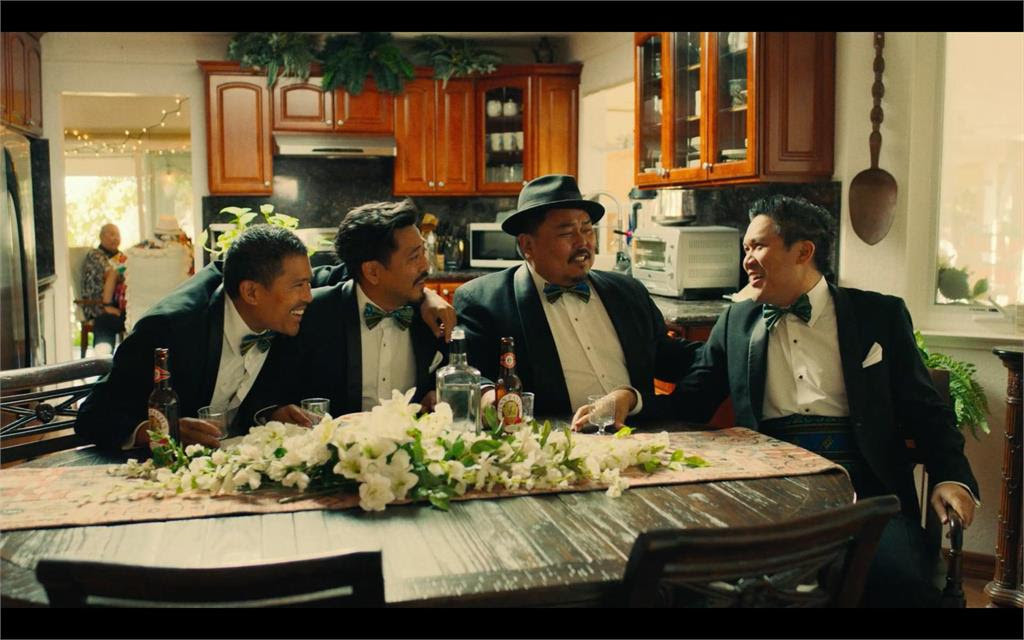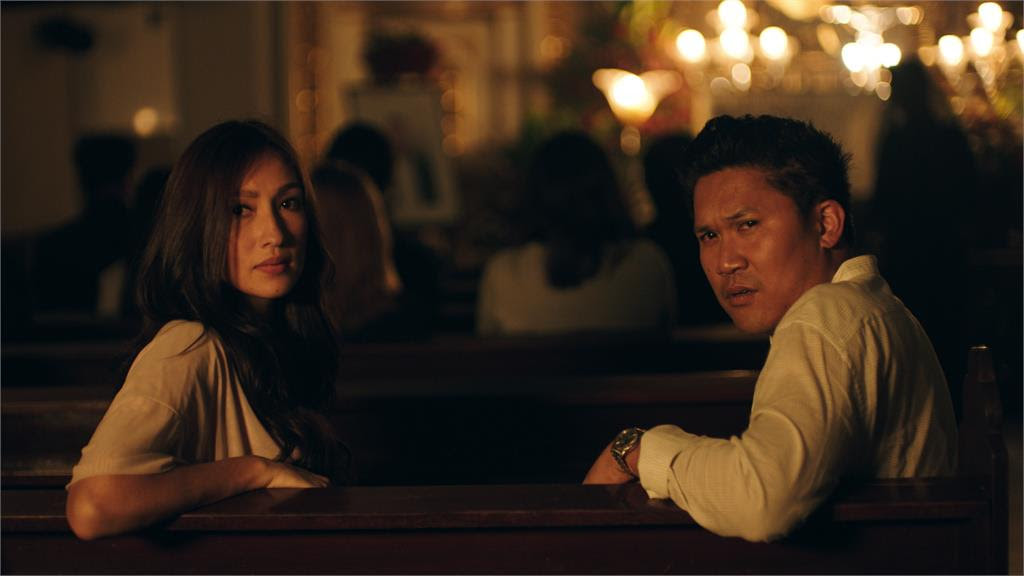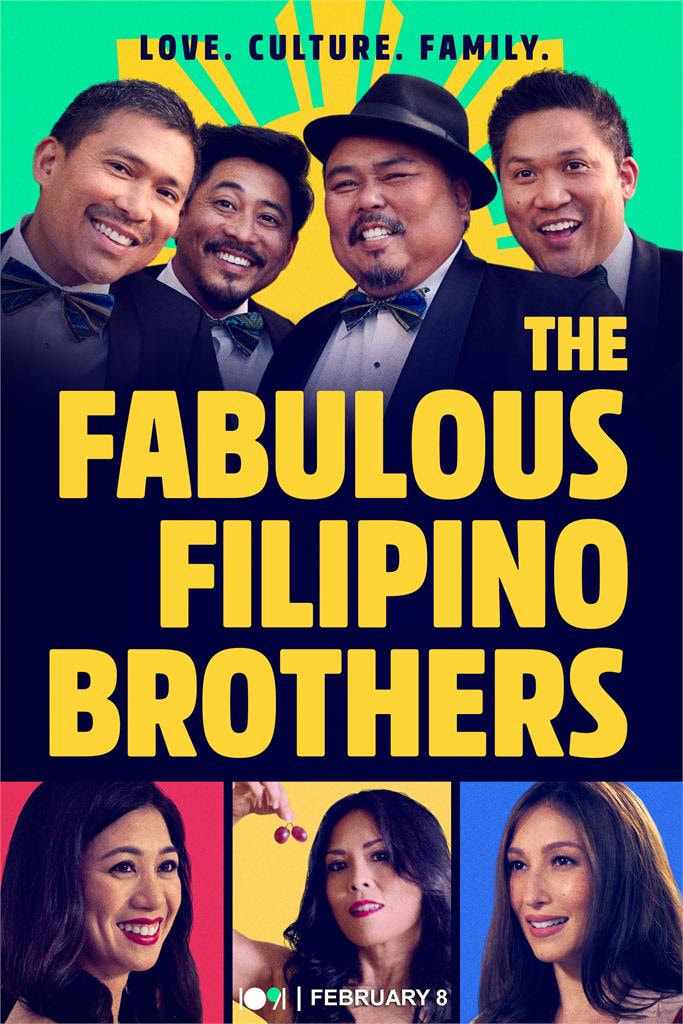|
Dante Basco is a Filipino American actor, writer, and producer best known for his voice-acting gig as Prince Zuko in “Avatar: The Last Airbender” (2005-2008) and his role as Rufio in Hook (1991). But before his breakout role as the skateboarding, insult-throwing, skunk-haired leader of the lost boys, he was making a name for himself as a break-dancer alongside his brothers: Derek, Dionysio, and Darion. All four Basco brothers went on to pursue careers in the film and entertainment industry — and since they had performed together as teens, it’s no surprise that the fraternal quartet wanted to make a movie together as adults. In 2000, all four brothers appeared in the family dramedy The Debut. Then, in 2021, they came together to make a movie once again, this time with Dante as director. The Fabulous Filipino Brothers celebrates love, Filipino-American culture, and above all, family. Dante, Derek, Dionysio, and Darion play four adult brothers who are still trying to figure out what it means to be grownups, much like Rufio and the lost boys in Hook. Their strengths and weaknesses are tested in a series of comedic predicaments that bring them closer together as they prepare for a wedding. The Fabulous Filipino Brothers premiered at the SXSW Film Festival in March of 2021, and it will be available to enjoy on VOD platforms starting February 8, 2022. Dante teamed up with Darion, Dionysio, and their sister, Arianna, to write The Fabulous Filipino Brothers. The movie was inspired by the Basco family’s real-life experiences, and it’s set in Pittsburg, California, where all five children were born. The story focuses on four fictional brothers who are loosely based on the real Basco men. In a series of flashbacks, we see what each brother was up to in the weeks leading up to the wedding. There’s Dayo (Derek Basco), the oldest, who wants to prove himself to his brothers and his wife by paying for the giant spread of food and alcohol needed for the party. Then, there’s Duke (Dante Basco), the “lucky one,” who finds himself in a romantic pickle while on a business trip to The Philippines. David (Dionysio Basco), on the other hand, is a certified lady’s man with no trouble finding someone new to flirt with as the family decorates their house for the big reception. Finally, there’s Danny, (Darion Basco), who hides away in the guest room of Dayo’s house as he nurses a broken heart. In the midst of personal crises and struggles, the brothers are reminded about the importance of culture and family. The Fabulous Filipino Brothers is engaging and easy to watch because it’s divided into four unique sections that each introduce fresh new jokes, plot lines, and characters. The sections are stitched together by brief transition shots of the wedding and voice-over narration provided by Arianna. By giving each brother his own mini story, Dante is able to pack lots of different themes into the movie without losing focus. This structure makes the movie feel fast-paced, engaging, and personal, and it gives us time to get to know each of the four brothers in depth. But the best part about this structure is that each section relies on a different type of comedy. The comedic style of the movie shifts every 20 minutes or so, which keeps things interesting. All four Basco brothers get the chance to shine, and they each have slightly different talents to offer. Dayo’s story, for example, is all about situational humor and irony. His mini story makes fun of traditional masculinity while also demonstrating how Dayo continues to grow and mature as an adult. David, on the other hand, takes crude physical comedy to its limit with an all-out seduction staged over a table of party food. Duke and Danny’s sections are more serious, relying on wit and humorous dialogue rather than physical comedy. Not every joke works, and a lot of the humor in The Fabulous Filipino Brothers is boyish and corny. But anyone who watches the movie will be able to find a handful of gags that make them laugh, or at least chuckle. There’s enough variety in the jokes to keep the movie interesting, and you’ll want to keep watching even if you don’t find one section particularly funny. The comedic storylines are supported by a catchy soundtrack and a strong overall production design. The stunning views of sunny California shine a bright light over the entire story, setting a feel-good, upbeat tone. However, the happy-go-lucky vibes don’t quite fit with the serious moments in the plot, particularly those in Duke’s story. Duke’s poor decision-making skills land him in quite a sticky situation, which turns into a sexist masculine fantasy. He’s granted an all-too convenient path around the consequences of his actions, and the script completely glosses over the repercussions that those actions would have for the women in Duke’s life. Although the Basco brothers pay tribute to the ladies in their family toward the end of the movie, the sentiment feels forced and arrives too late. Luckily, in Danny’s section of the move, the tone shifts to match the seriousness of the plot. In fact, Danny’s flashback is probably the strongest part of The Fabulous Filipino Brothers. In the other three sections, the dialogue and performances are stiff and awkward. The characters routinely tell us how they feel rather than showing us, and the dialogue shoves themes about culture and family into our faces. The unnatural dialogue weakens the movie’s message about the importance of family, but things take a turn for the better during Danny’s moment in the spotlight. Liza Lapira, who plays a friend of Danny’s, is a breath of fresh air. She approaches her comedic role with grace and nuance. The script also hits its stride in this serious section of the movie. Perhaps the Basco siblings are better at writing drama than comedy. Danny’s story ends the film on a good note, even though it concludes with a rushed and awkward moment of appreciation for mothers, wives, and sisters. The Fabulous Filipino Brothers isn’t a perfect family movie — but then again, families aren’t perfect either.
0 Comments
Leave a Reply. |
"Our embodied spectator, possibly perverse in her fantasies and diverse in her experience, possesses agency...finally, she must now be held accountable for it." Categories
All
|



